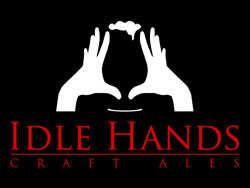
For years, new breweries in Massachusetts have applied for “Farmer-brewery” licenses, an inexpensive way for new brewers to make beer, sell it on-site and self-distribute to outside retailers and on-premise accounts.
But the decision on July 20th to deny brewery startup, Idle Hands Craft Ales, their request for a Farmer-Brewery license, could now force brewers to find other ways of getting their product to market.
The decision stated that “…a person who grows less than 50%, in the aggregate of the quantity of cereal grains and hops needed to produce the anticipated volume of malt beverages is not a farmer brewer…”
In the denial, the ABCC also further indicated that “the Commission will be applying this ruling prospectively and, specifically, during the next annual renewal cycleÔǪ”
At worst, the change in the way the board is now interpreting the licensing statute endangers startup brewing operations, according to some industry members. At best, they say, it will require new companies to undertake more expensive routes to market.
Brewbound will provide continuing coverage of this issue as it develops and as more information becomes available. Below is a press release from Idle Hands concerning the ruling.
Idle Hands Craft Ales’ Farmer-Brewery License Denied
Massachusetts State Licensing Commission Indicates that a 50 Percent Threshold will be Applied to the Commonwealth Brewing Industry
Everett, Mass., August 2, 2011 – Idle Hands Craft Ales LLC announced that the Massachusetts Alcoholic Beverages Control Commission (ABCC) denied the brewery’s Commonwealth of Massachusetts Farmer-Brewery license, a move that could have wide-spread implications for the brewing industry in the state.
According to the ABCC, to qualify for the Farmer-Brewery license, a farmer-brewer must “grow at least 50 percent, in the aggregate, of the quantity of cereal grains and hops needed to produce the anticipated volume of malt beverages.” Idle Hands has conceded to this decision as their plans to farm, while in support of domestic agriculture and in line with the spirit of the Section 19C licensing guidelines, will not meet this newly specified 50 percent threshold.
This decision redefines a long-standing license that a vast majority of production breweries in the state hold. The ABCC explicitly stated in its decision to Idle Hands that, “the industry is put on notice that the Commission will be applying this ruling prospectively and, specifically, during the next annual renewal cycle to ensure that every applicant for a farmer-brewer license meets the state law definition of farmer-brewer by growing at least 50 percent…” Given the ABCC’s statement, all farmer-brewery licenses will come under the same scrutiny during the renewal time period (effective fall 2011 for 2012 licenses).
“While we are in the process of re-evaluating our business plan for the brewery, we are equally concerned with the potentially devastating financial impact this decision has on the entire brewing industry in the Commonwealth of Massachusetts,” said Chris Tkach, founder and head brewer of Idle Hands.
“A decision by the ABCC to force our farm to grow and malt grain will put our farm, and any farmer in the Commonwealth, out of the farm-brewing business,” said Bill Russell of Just Beer @ Buzzards Bay Brewing in Westport, MA.
If Massachusetts state breweries are unable to meet the 50 percent hurdle of the Farmer-Brewery license, they will need to acquire the only alternative, a Manufacturer of Wine and Malt Beverages License. The Manufacturer license, however, does not allow breweries to sell beer at retail or do tastings on site — one of the unique draws of the burgeoning craft beer market. It also forces breweries to utilize wholesale distribution channels which will result in potentially lower margins for the brewery (or higher costs to the consumer) and limited product distribution. Many small breweries rely on already tight margins and self-distribution in order to survive in an industry that favors more established and larger players.
Though this decision helps clarify a license that has been on the book for years, it sets a precedent that creates far-reaching effects on breweries, bars, restaurants, retailers and ultimately consumers. There are cost implications and more important issues relate to economic growth, industry innovation, and consumer access to a greater variety of local beers. These effects are further amplified as the brewing industry is one of a few growing industries in an otherwise struggling economy. Existing breweries of all sizes will have to adapt to the 50 percent requirements or apply for alternate licensing, and local entrepreneurs will have to determine whether they can invest in an industry that no longer supports growth and innovation.
